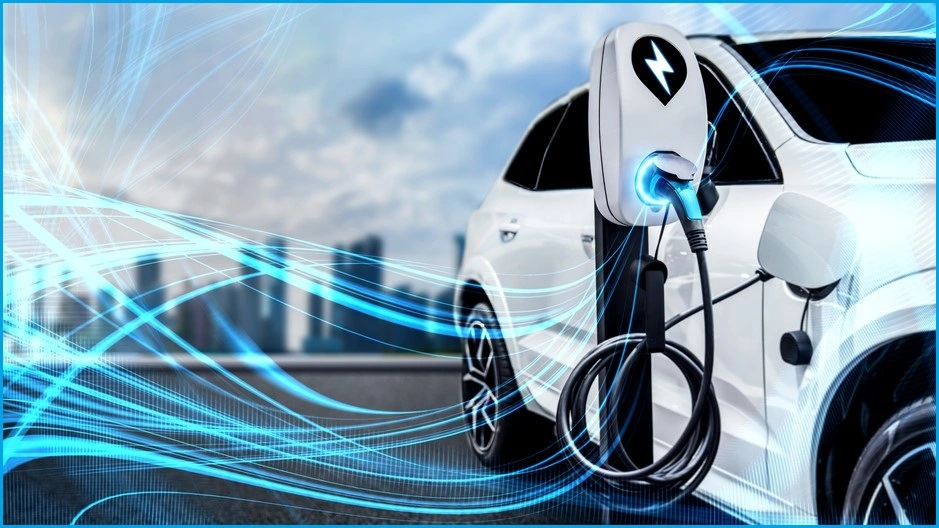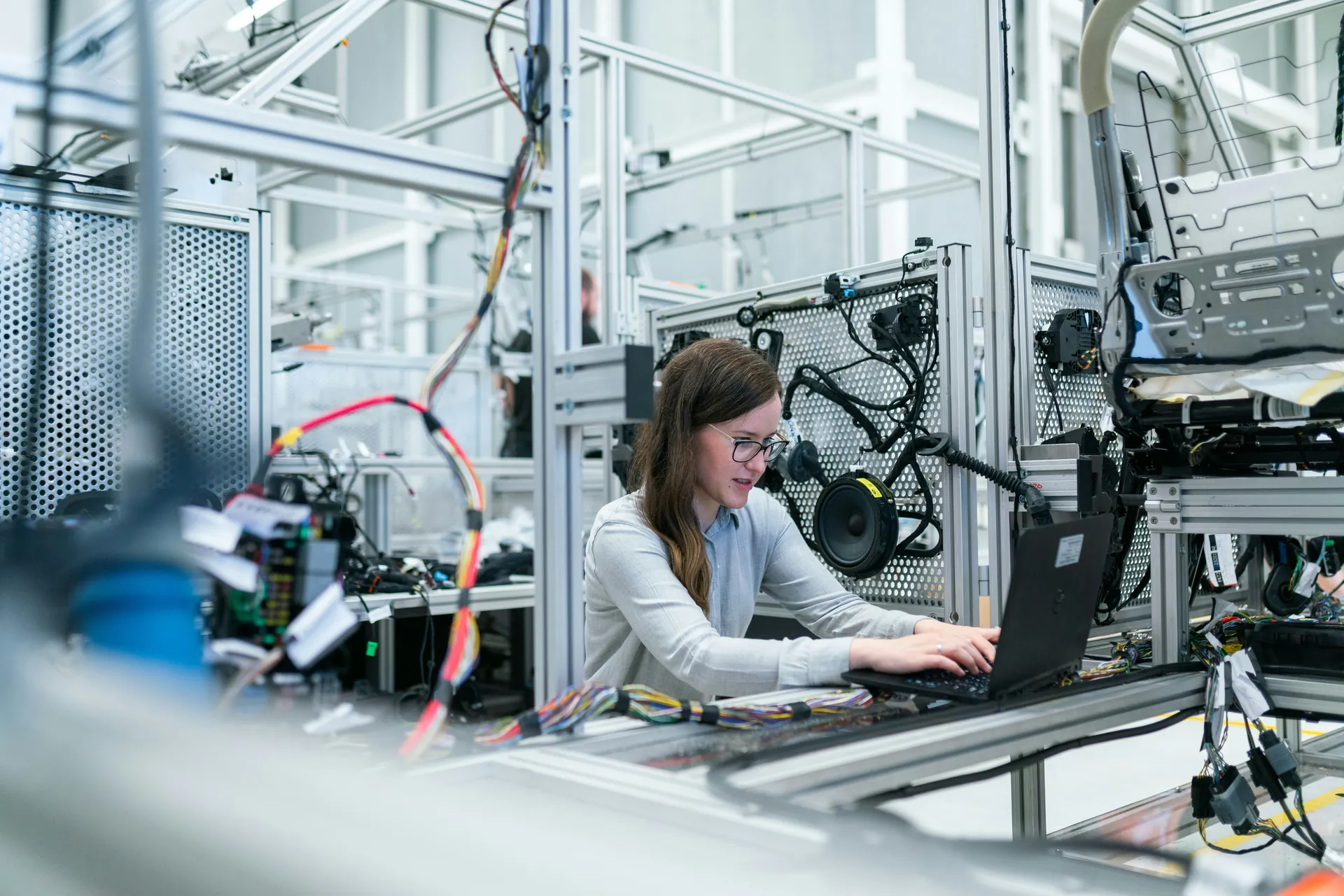7 Powerful Reasons Why Electric Vehicles Are the Future in Pakistan: Benefits, Batteries & Beyond
Table Of Contents
- The Benefits of Electric Vehicles in Pakistan
- Environmental Impact
- Economic Advantages
- Energy Security
- Current State and Challenges of EV Batteries
- Technology and Accessibility
- Infrastructure Needs
- Recycling and Environmental Concerns
- The Future of Electric Vehicles in Pakistan
- Government Policies and Incentives
- Market Potential and Consumer Perception
- Collaboration and Investment Opportunities

As the world moves towards sustainable and environmentally friendly transportation, electric vehicles (EVs) are emerging as a promising alternative to traditional petrol and diesel cars. In Pakistan, the interest in EVs is growing, fueled by both environmental concerns and economic advantages.
While the concept of EVs isn’t new, advancements in technology, especially in battery electric vehicles, have made them more appealing than ever. Whether you’re considering a Tesla Model or a Hyundai Ioniq, or exploring hybrid electric vehicles, understanding Pakistan’s EV landscape is essential.
The shift to EVs aligns with the global trend of reducing carbon footprints and dependence on fossil fuels. For Pakistan, this transition is particularly critical as the country spends nearly USD 13 billion annually on oil imports.
EVs offer a vast potential to reduce financial burdens, mitigate environmental damage, and create economic opportunities. This article explores the benefits, challenges, and future of EV adoption in Pakistan.
The Benefits of Electric Vehicles in Pakistan

Environmental Impact
The introduction of electric vehicles (EVs) in Pakistan is expected to have a significant positive impact on the environment. One of the most critical benefits is the reduction in air pollution. Since EVs do not emit any pollutants, their adoption can substantially limit the emissions that contribute to air pollution, particularly in urban areas.
According to the National Electric Vehicle Policy, the transport sector accounts for 43% of the airborne emissions in Pakistan, and the rise in fossil fuel vehicles (FFVs) is only exacerbating this problem. By transitioning to EVs, Pakistan can mitigate the worsening air quality and create a cleaner environment for its citizens.
Economic Advantages
The economic benefits of EVs in Pakistan are multifaceted. One of the most significant advantages is the reduction in the country’s oil import bill. Pakistan spends nearly USD 13 billion annually on oil imports, which is a major factor contributing to the country’s trade deficit and stagnant economic growth.
By promoting the use of EVs, Pakistan can substantially reduce its dependence on imported oil, thereby easing the financial burden and potentially stimulating economic growth. Additionally, the development of an EV industry in Pakistan could lead to the creation of new green businesses and employment opportunities, further enhancing the country’s socio-economic situation.
Energy Security
Electric vehicles also offer enhanced energy security for Pakistan. The country’s heavy reliance on imported fossil fuels makes it vulnerable to fluctuations in global oil prices and supply disruptions.
By transitioning to EVs, Pakistan can diversify its energy sources and reduce its dependence on imported oil. This shift can also encourage the development and use of local renewable energy sources for charging EVs, which would further improve energy security and reduce the country’s carbon footprint. The National Electric Vehicle Policy aims to achieve this through a phased approach, including market development, fuel import bill substitution, and local adoption and export of EVs.
Current State and Challenges of EV Batteries

Technology and Accessibility
The current state of EV batteries in Pakistan faces numerous challenges, particularly in the areas of technology and accessibility. A notable issue is the misleading marketing of “graphene batteries” in electric scooters. Despite claims of advanced technology, many of these batteries are simply lead-acid batteries with a thin graphene coating, offering minimal improvement in performance and lifespan.
These lead-acid batteries experience short lifespans, rapid degradation, and low efficiency, making them significantly less reliable than genuine lithium-ion batteries. Lithium-ion batteries, by comparison, offer superior lifespan, faster charging times, and better overall performance. However, their higher upfront cost and limited availability in the local market remain major barriers to widespread adoption.
A recent partnership between BYD and Diwan International to introduce premium lithium-ion batteries, such as the LV Flex Lite, marks a positive step forward. These batteries, built on Lithium Iron Phosphate (LFP) technology, are globally recognized for their efficiency and safety.
Infrastructure Needs
The infrastructure for EV batteries in Pakistan is still in its early stages, presenting critical challenges such as the lack of comprehensive charging and battery swapping networks. To address this, initiatives like the battery swapping network project aim to deploy a network of swapping stations integrated with solar photovoltaic (PV) technology. This approach not only reduces range anxiety but also leverages renewable energy, lowering charging costs and greenhouse gas emissions.
Beyond charging networks, robust infrastructure is needed for spare parts and maintenance services. Many EV scooters in Pakistan are white-label imports from China, often lacking sufficient spare parts and after-sales support. This can create difficulties in maintaining and repairing these vehicles, further discouraging potential buyers.
Recycling and Environmental Concerns
Recycling and environmental concerns are also significant challenges for the EV battery industry in Pakistan. The use of lead-acid batteries, even with graphene coatings, poses environmental risks due to their toxic lead content. These batteries require high maintenance, are prone to leakage, and suffer from sulfation, making them harmful to both the environment and users.
In contrast, lithium-ion batteries are more eco-friendly and recyclable. However, Pakistan currently lacks a developed recycling infrastructure to handle these batteries responsibly. As the EV industry expands, establishing robust recycling mechanisms will be vital to managing the disposal of lithium-ion batteries and other components.
Such measures will mitigate environmental impacts and ensure the sustainable growth of the EV sector.
The Future of Electric Vehicles in Pakistan

Government Policies and Incentives
The future of electric vehicles (EVs) in Pakistan is being shaped by the government’s proactive policies and incentives designed to encourage their adoption. The New Energy Vehicle (NEV) Policy 2025-2030 offers a detailed framework to support the transition to EVs. Notable incentives include the removal of Additional Customs Duty and Additional Sales Tax (AST) on EV imports, significantly reducing their purchase price.
Locally manufactured EVs up to 50KW and light commercial vehicles up to 150KW will be subject to only 1% sales tax. Furthermore, EVs will be exempt from registration fees and annual renewal fees, making them more accessible to consumers.
The policy also introduces substantial subsidies, such as Rs. 50,000 for electric motorcycles and Rs. 200,000 for three-wheelers, with a total allocation of Rs. 4 billion. These subsidies will be distributed through auctions to stimulate EV purchases.
Additionally, the policy rate has been reduced from 22% to 15%, and financing is available at a 3% Kibor (Karachi Interbank Offered Rate), making EVs even more affordable for the average consumer.
Market Potential and Consumer Perception
The market potential for EVs in Pakistan is vast, driven by increasing consumer awareness and the growing demand for sustainable transportation solutions. By 2030, the government aims for 30% of new vehicle sales to be NEVs, increasing to 90% by 2040, and ultimately reaching 100% by 2050.
This ambitious goal is set to transform Pakistan’s automotive landscape, positioning EVs as a mainstream choice for consumers.
Consumer perception is evolving positively, with many acknowledging the economic and environmental benefits of EVs. Lower operating costs, reduced maintenance requirements, and significant fuel savings are key factors driving interest. However, to further boost consumer confidence, addressing range anxiety and improving charging infrastructure will be essential.
Collaboration and Investment Opportunities
The future of EVs in Pakistan is also characterized by notable collaboration and investment opportunities. Global giants like BYD Group of China and Dewan Motors have already secured manufacturing licenses in Pakistan, showcasing strong international interest in the local EV market.
Special Technology Zones dedicated to NEV technology, offering reduced costs and green loans, are expected to attract more investors and drive innovation in the sector.
The government’s plans to establish a New Energy Fund and a New Energy Vehicle Centre will further support the EV transition by fostering research, innovation, and workforce development. Partnerships between academia and industry are anticipated to play a critical role in advancing technological capabilities and equipping professionals with the necessary skills for the EV ecosystem.
This collaborative approach is likely to accelerate the growth of the EV industry in Pakistan, positioning the country as a regional hub for sustainable mobility solutions.
Conclusion
In conclusion, the adoption of electric vehicles in Pakistan presents a pivotal opportunity for the country to address its environmental, economic, and energy security challenges. The government’s proactive policies, including reduced taxes, lower electricity tariffs, and subsidies for EV buyers, are significant steps towards achieving the targets set by the National Electric Vehicle Policy. The expansion of charging infrastructure, public-private partnerships, and investments from global manufacturers like BYD and Hyundai are also key to driving this transition.
Despite the challenges, such as high upfront costs and limited charging accessibility, the long-term benefits of EVs—including reduced oil import bills, job creation, and environmental improvements—make them an attractive option. As Pakistan moves forward, it is essential for policymakers, businesses, and consumers to collaborate in promoting EV adoption. By seizing this opportunity, Pakistan can align with global sustainability goals, reduce its environmental footprint, and foster economic growth.
The future of sustainable mobility in Pakistan is promising, and collective action can make this vision a reality.
FAQ
Is it worth buying an electric car in the UK now?
Buying an electric car in the UK can still be a smart investment, even with the new tax changes. Electric vehicles (EVs) are subject to lower taxes compared to petrol or diesel cars. The first-year rate is just £10, followed by a standard rate of £195 annually.
Additionally, the Benefit-in-Kind (BiK) tax rate for EVs remains competitive at 3% starting from April 2025. Other financial perks include cheaper energy tariffs and significantly lower maintenance costs.
What is the best electric car in the UK?
The best electric car in the UK is the Renault 5. It stands out for its comfortable ride, an advanced infotainment system, attractive pricing, and a range of up to 253 miles with the recommended 52kWh battery.
Which is the cheapest car to buy electric?
The cheapest electric car available is the 2025 Nissan Leaf, with a starting price of $28,140.
What is the cheapest EV car in the UK?
The cheapest EV car in the UK is the Dacia Spring, priced from £14,995. For an even more budget-friendly option, consider the Dogood Zero, a quadricycle priced from £5,500.

 Cart is empty
Cart is empty
Leave A Comment